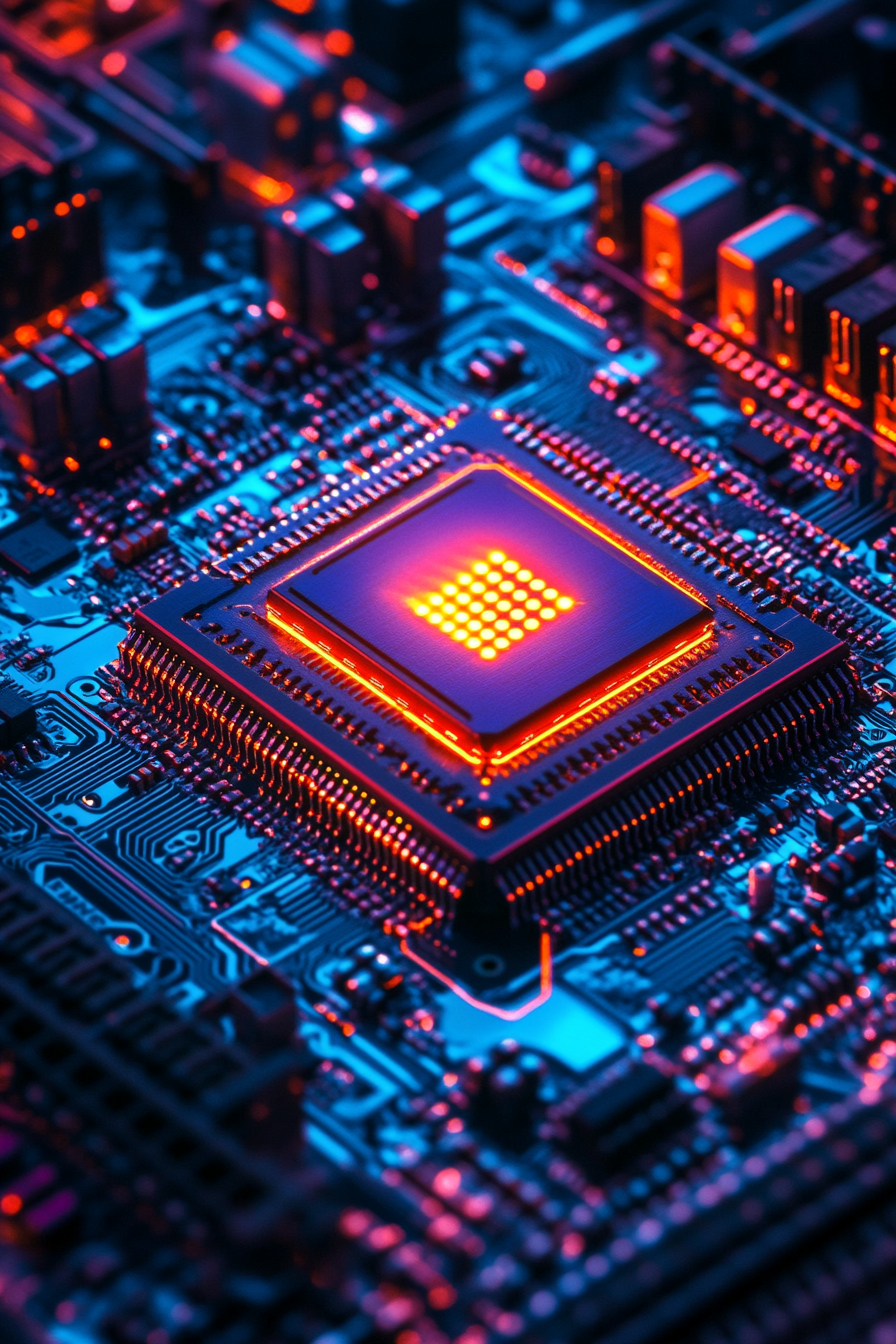OpenAI’s Stargate Project: A Massive Leap Forward for AI in the US
OpenAI recently announced the Stargate Project, a new company formed in partnership with SoftBank, Oracle, and MGX.
This ambitious project aims to invest $500 billion over the next four years to build AI infrastructure in the United States, with an initial deployment of $100 billion.
This massive undertaking has the potential to reshape the AI landscape, promising significant economic benefits and bolstering national security.
Listen to Podcast
Goals of the Stargate Project
The Stargate Project has several key goals:
- Secure American leadership in AI: By investing heavily in AI infrastructure within the United States, the project aims to ensure the country remains at the forefront of AI development and innovation.
- Generate economic benefits: The project’s investment in AI infrastructure is expected to generate massive economic benefits for the entire world, potentially leading to new industries, products, and services.
- Protect national security: The project will provide a strategic capability to protect the national security of America and its allies by ensuring access to cutting-edge AI technology for defence and intelligence purposes.
Share This Post
Features of the Stargate Project
The Stargate Project will involve the construction of state-of-the-art data centers across the United States, starting with an initial facility in Texas. These data centers will be designed to support the development and deployment of advanced AI models, including those focused on artificial general intelligence (AGI). Key features of the project include:
- Collaboration with key technology partners: OpenAI is partnering with leading technology companies like Arm, Microsoft, NVIDIA, and Oracle to build and operate the Stargate computing system. This collaboration will leverage the expertise and resources of each partner to create a robust and innovative infrastructure.
- Focus on sustainability: OpenAI is committed to building sustainable AI infrastructure and is actively seeking collaborators who can contribute to eco-friendly practices. This will ensure that the project’s environmental impact is minimized.
- Continued partnership with Microsoft: While OpenAI is diversifying its cloud infrastructure with the Stargate Project, it will continue to work closely with Microsoft and utilize Azure for training leading models and delivering products and services. Microsoft has also updated its partnership with OpenAI, adjusting capacity rights and exclusivity while maintaining key agreements. This includes Microsoft retaining access to OpenAI’s IP for use in products like Copilot, ensuring customers have access to the best models. The OpenAI API remains exclusive to Azure and is available through the Azure OpenAI Service. Revenue-sharing agreements between the two companies remain in place, and Microsoft continues to be a major investor in OpenAI.
- Strategic Location in Texas: The choice of Texas for the first data center is strategic. Texas offers a robust power infrastructure, ample available land, and an existing technology workforce, making it an ideal location for this ambitious project.
| Partner | Role |
|---|---|
| OpenAI | Contributing AI technology expertise, advanced models, and ethical AI development |
| Oracle | Providing cloud infrastructure, data center capabilities, and database management systems |
| NVIDIA | Supplying cutting-edge GPU technology and AI accelerators |
| SoftBank | Leading the investment strategy, international coordination, and business development |
| Microsoft | Providing continued support through Azure and access to OpenAI's IP |
| Arm | Contributing to the development of advanced AI chips and hardware |
| MGX | Providing financial support and investment |
Potential Applications of the Stargate Project
The Stargate Project has the potential to revolutionize various industries and sectors. Some of the potential applications include:
- Healthcare: AI-powered tools can be used for early disease detection, personalized medicine, and drug discovery. The project could accelerate the development of cancer vaccines and other life-saving treatments. Larry Ellison, chairman of Oracle, highlighted the project’s connection to digital health records and its potential to facilitate the treatment of diseases like cancer, suggesting that it could lead to the development of customized vaccines and rapid treatment options.
- National defense: AI can enhance national security by improving intelligence gathering, surveillance, and threat detection capabilities. The project could potentially lead to OpenAI becoming a major supplier of military AI systems, with implications such as the development of fully unmanned stealth bombers with enhanced operational capabilities.
- Cybersecurity: AI can be used to identify and prevent cyberattacks, protecting critical infrastructure and sensitive data.
- Education: AI can personalize learning experiences, provide individualized support to students, and automate administrative tasks.
- Manufacturing: AI can optimize production processes, improve quality control, and enable the development of new materials and products.
Technology Behind the Stargate Project
The Stargate Project will leverage cutting-edge technology to create a powerful and efficient AI infrastructure. This includes:
- Advanced data centers: The project will involve the construction of state-of-the-art data centers equipped with the latest hardware and software, including advanced CPUs, GPUs, and networking technologies from leading providers like NVIDIA and Oracle.
- High-performance computing: The data centers will utilize high-performance computing (HPC) systems to support the training and deployment of complex AI models.
- Cloud computing: The project will leverage cloud computing platforms like Oracle Cloud Infrastructure and Microsoft Azure to provide scalability and flexibility.
- AI accelerators: The project will utilize specialized hardware like GPUs and AI accelerators to speed up AI computations.
Potential Benefits and Risks of the Stargate Project
The Stargate Project offers significant potential benefits, including:
- Economic growth: The project’s investment in AI infrastructure and job creation will stimulate economic growth in the United States. The project is expected to create hundreds of thousands of jobs in construction, infrastructure development, and AI-related fields. This will not only boost the US economy but also provide valuable skills and opportunities for American workers. In Abilene, Texas, where the first data center is being built, the project is expected to bring significant economic development, attracting investment and talent to the area.
- Technological advancement: The project will accelerate the development and deployment of advanced AI technologies, leading to breakthroughs in various fields.
- National security: The project will enhance national security by providing access to cutting-edge AI capabilities.
However, there are also potential risks associated with the project:
- Funding challenges: The project’s ambitious scale requires significant funding, and there are concerns about the financial feasibility of the $500 billion investment. Elon Musk, for example, has expressed doubts about the project’s funding, particularly regarding SoftBank’s ability to finance such a massive undertaking.
- Ethical considerations: The development and deployment of advanced AI technologies raise ethical concerns about bias, privacy, and job displacement. It is crucial to address potential biases in AI systems to ensure fairness and equity. Additionally, the project’s impact on employment needs careful consideration, with strategies for retraining and supporting workers who may be affected by AI-driven automation.
- Competition with China: The project’s focus on securing American leadership in AI could intensify competition with China and other countries.
Timeline for the Stargate Project
The Stargate Project is a long-term initiative with a planned investment of $500 billion over the next four years. The project was officially announced on January 21, 2025, and construction of the first data center in Texas is already underway. OpenAI is evaluating potential sites across the country for more campuses as it finalizes definitive agreements.
Public and Expert Reactions to the Stargate Project
The Stargate Project has generated significant interest and discussion among the public and experts.
While many are optimistic about the project’s potential benefits, there are also concerns about its feasibility and potential risks.
Some experts have questioned SoftBank’s ability to finance the ambitious initiative, while others have raised ethical concerns about the development and deployment of advanced AI technologies.
There are also indications of a potential disagreement brewing concerning the funding of OpenAI and the Stargate Project, potentially involving figures like Donald Trump and Elon Musk.
Conclusion
The OpenAI Stargate Project represents a bold and ambitious initiative with the potential to transform the AI landscape in the United States and beyond. By investing heavily in AI infrastructure, OpenAI and its partners aim to secure American leadership in AI, create jobs, and generate economic benefits. This initiative could have a profound impact on various sectors, from healthcare and national defense to education and manufacturing. The development of advanced AI models, potentially including AGI, could lead to breakthroughs in disease treatment, national security, and other critical areas.
However, the project also faces challenges, including funding concerns and ethical considerations. Addressing these challenges will be crucial to ensuring the project’s success and maximizing its positive impact. The focus on AGI raises fundamental questions about the future of humanity and the role of AI in society. It is essential to approach these questions with careful consideration and ensure that the development and deployment of AI technologies are aligned with human values and ethical principles.
The Stargate Project’s success will depend not only on technological advancements but also on responsible development, ethical considerations, and international collaboration. By navigating these complexities, the project has the potential to unlock significant benefits for the United States and the world, shaping a future where AI plays a pivotal role in driving progress and innovation.











